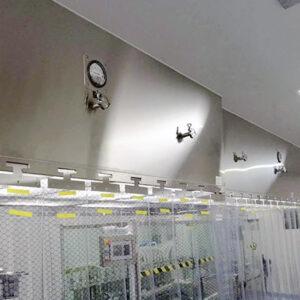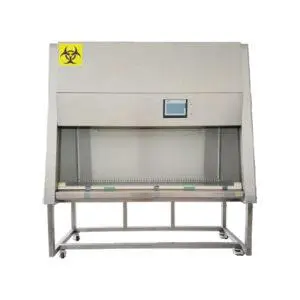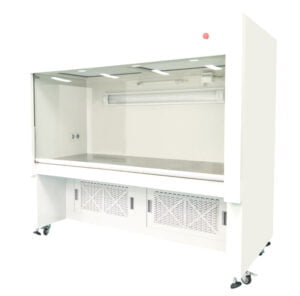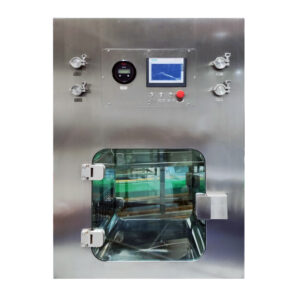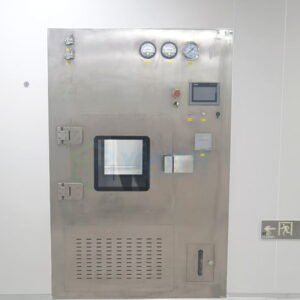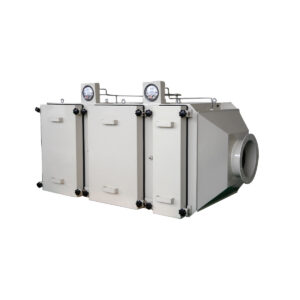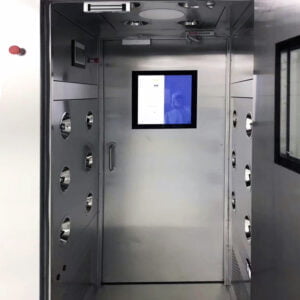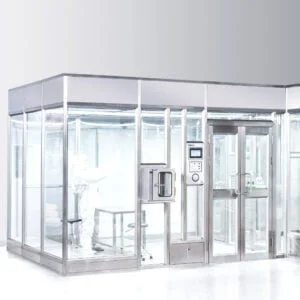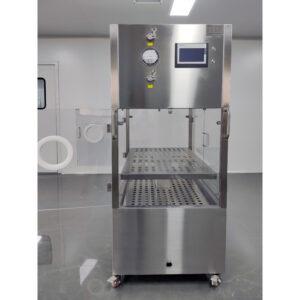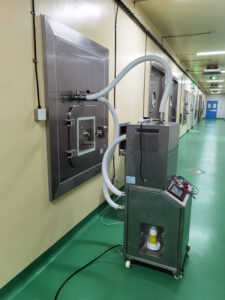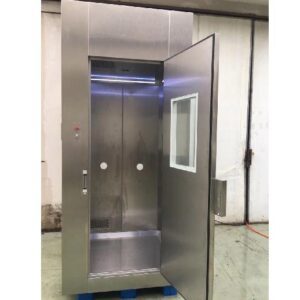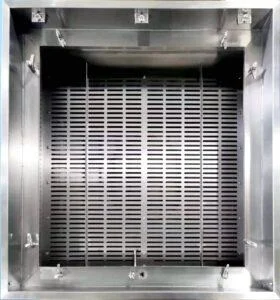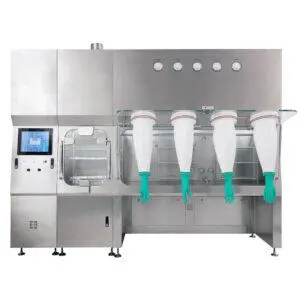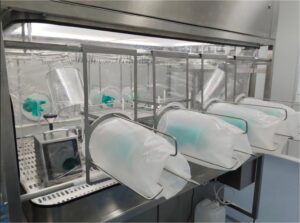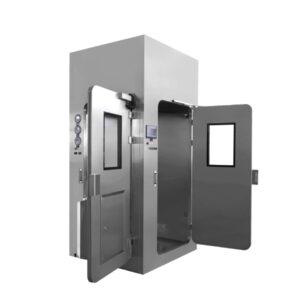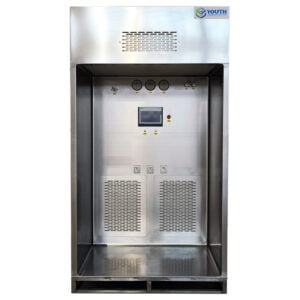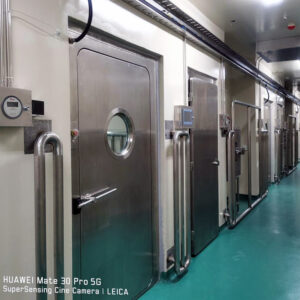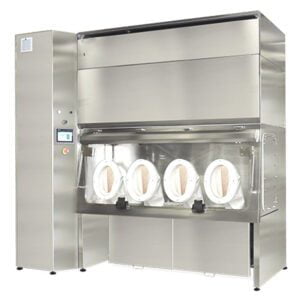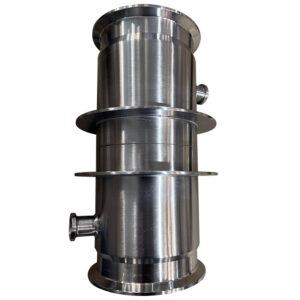In the world of chemical handling, safety is paramount. As industries evolve and regulations tighten, innovative solutions are needed to ensure the protection of workers, the environment, and the integrity of products. Enter BIBO systems – a game-changing approach to safe chemical handling that's revolutionizing the industry. These Bag In Bag Out systems are designed to minimize exposure to hazardous materials during filter changes and maintenance, providing a crucial layer of safety in chemical processing environments.
The importance of BIBO systems in chemical handling cannot be overstated. They offer a robust solution to the challenges faced by chemical manufacturers, pharmaceutical companies, and research laboratories. By creating a sealed environment for filter changes, BIBO systems effectively contain contaminants, prevent cross-contamination, and protect workers from exposure to potentially harmful substances. This innovative technology not only enhances safety but also improves efficiency and helps facilities comply with stringent regulatory requirements.
As we delve deeper into the world of BIBO systems for chemical handling, we'll explore their key features, benefits, and applications. We'll examine how these systems work, the various industries they serve, and the impact they're having on workplace safety and productivity. From understanding the basic principles to exploring advanced applications, this comprehensive guide will provide valuable insights into the role of BIBO systems in modern chemical handling practices.
"BIBO systems represent a significant advancement in contamination control and worker safety for chemical handling operations. By providing a sealed, controlled environment for filter changes and maintenance, these systems effectively minimize the risk of exposure to hazardous materials and ensure the integrity of clean environments."
What are BIBO Systems and How Do They Work?
BIBO systems, short for Bag In Bag Out, are specialized containment systems designed to provide safe and efficient filter changes in environments where hazardous materials are present. These systems are particularly crucial in chemical handling applications where the risk of contamination or exposure to harmful substances is high. But how exactly do these systems work, and what makes them so effective?
At their core, BIBO systems consist of a housing unit that contains filters, typically HEPA (High-Efficiency Particulate Air) filters, and a unique bagging mechanism. This mechanism allows for the safe removal and replacement of contaminated filters without exposing workers or the surrounding environment to potentially harmful substances.
The operation of a BIBO system is elegantly simple yet highly effective. When a filter needs to be changed, a specialized bag is attached to the housing unit. The contaminated filter is then pulled into this bag, which is subsequently sealed and removed. A new filter is then introduced through a similar bagging process, ensuring that at no point is there direct contact between the contaminated filter and the external environment.
"BIBO systems provide a critical barrier between hazardous materials and workers during filter changes. By eliminating direct contact with contaminated filters, these systems significantly reduce the risk of exposure and contamination, making them an indispensable tool in safe chemical handling practices."
| Component | Function |
|---|---|
| Housing Unit | Contains filters and provides structural support |
| HEPA Filters | Remove particulates from air or gas streams |
| Bagging Mechanism | Allows for safe filter removal and replacement |
| Safety Interlock | Prevents accidental opening during operation |
The effectiveness of BIBO systems lies in their ability to maintain a continuous seal throughout the filter change process. This not only protects workers from exposure but also prevents the release of contaminants into the surrounding environment. Furthermore, the use of YOUTH BIBO systems ensures compliance with stringent safety regulations and industry standards, making them an essential component of any comprehensive chemical handling safety program.
Why are BIBO Systems Essential for Chemical Handling?
In the realm of chemical handling, safety is not just a priority—it's an absolute necessity. But why are BIBO systems considered essential in this field? What unique advantages do they offer that make them indispensable for safe chemical handling operations?
BIBO systems address several critical challenges in chemical handling environments. Firstly, they provide a robust solution for contamination control. In industries where even the smallest particle contamination can have severe consequences, BIBO systems ensure that filter changes do not compromise the integrity of clean environments. This is particularly crucial in pharmaceutical manufacturing, semiconductor production, and other sensitive chemical processes.
Secondly, BIBO systems significantly enhance worker safety. By creating a sealed environment for filter changes, these systems minimize the risk of exposure to hazardous materials. This is especially important when dealing with toxic chemicals, carcinogens, or other dangerous substances that are common in many chemical handling operations.
"The implementation of BIBO systems in chemical handling facilities has been shown to reduce worker exposure incidents by up to 98%, while also improving overall operational efficiency and reducing downtime associated with filter changes."
| Benefit | Impact |
|---|---|
| Contamination Control | Maintains integrity of clean environments |
| Worker Safety | Minimizes exposure to hazardous materials |
| Regulatory Compliance | Meets or exceeds safety standards |
| Operational Efficiency | Reduces downtime during filter changes |
Moreover, BIBO systems play a crucial role in helping facilities comply with stringent regulatory requirements. Many industries dealing with hazardous chemicals are subject to strict safety and environmental regulations. The BIBO for chemical handling systems provide a reliable means of meeting these requirements, ensuring that operations remain compliant and avoid potential legal and financial repercussions.
In conclusion, BIBO systems are essential for chemical handling because they address the trifecta of safety, efficiency, and compliance. By providing a sealed, controlled environment for filter changes, these systems protect workers, maintain clean environments, and help facilities meet regulatory standards—all while improving operational efficiency.
How Do BIBO Systems Improve Safety in Chemical Laboratories?
Chemical laboratories are at the forefront of scientific research and innovation, but they also present unique safety challenges. How do BIBO systems specifically address these challenges and enhance safety in laboratory environments?
In chemical laboratories, researchers often work with a wide range of hazardous materials, from corrosive acids to volatile organic compounds. The potential for exposure to these substances during routine maintenance tasks, such as filter changes, poses a significant risk. BIBO systems provide a critical layer of protection by creating a sealed environment for these maintenance activities.
One of the key ways BIBO systems improve safety is by minimizing the risk of inhalation exposure. During filter changes, potentially contaminated air is contained within the BIBO system, preventing it from entering the laboratory space. This is particularly important when dealing with airborne toxins or particulates that could pose serious health risks if inhaled.
"Studies have shown that laboratories implementing BIBO systems have reported a 75% reduction in incidents related to chemical exposure during maintenance activities, highlighting the significant impact these systems can have on laboratory safety."
| Safety Feature | Benefit |
|---|---|
| Sealed Environment | Prevents release of contaminants |
| Double-Bagging System | Provides redundant containment |
| Visual Inspection Port | Allows for safe monitoring |
| Pressure Differential Gauge | Ensures system integrity |
Furthermore, BIBO systems contribute to maintaining the overall cleanliness and sterility of laboratory environments. By preventing the release of contaminants during filter changes, these systems help maintain the integrity of sensitive research areas, such as cleanrooms or biosafety cabinets. This is crucial for ensuring the validity of experimental results and protecting valuable research materials.
BIBO systems also play a role in improving laboratory ergonomics and reducing the physical strain on laboratory personnel. Traditional filter change methods often require awkward positioning and heavy lifting, which can lead to injuries. The design of BIBO systems allows for more ergonomic filter changes, reducing the risk of musculoskeletal injuries among laboratory staff.
In conclusion, BIBO systems significantly enhance safety in chemical laboratories by providing a sealed environment for filter changes, reducing the risk of exposure to hazardous materials, maintaining clean environments, and improving ergonomics for laboratory personnel. These benefits make BIBO systems an invaluable asset in modern chemical research facilities.
What Industries Benefit Most from BIBO Systems?
While BIBO systems have proven their worth in chemical handling across various sectors, certain industries stand to benefit more significantly from their implementation. But which industries are these, and why do BIBO systems play such a crucial role in their operations?
The pharmaceutical industry is perhaps one of the most prominent beneficiaries of BIBO technology. In pharmaceutical manufacturing, maintaining a sterile environment is paramount to ensure product quality and safety. BIBO systems play a critical role in this by allowing for filter changes without compromising the cleanliness of production areas. This is especially important in the production of sterile drugs, where even minor contamination can have serious consequences.
Another industry that greatly benefits from BIBO systems is semiconductor manufacturing. The production of microchips and electronic components requires extremely clean environments, as even microscopic particles can render products defective. BIBO systems help maintain these ultra-clean conditions by ensuring that filter changes do not introduce contaminants into the production environment.
"The implementation of BIBO systems in pharmaceutical cleanrooms has been associated with a 40% reduction in product contamination incidents, demonstrating the significant impact these systems can have on product quality and safety in sensitive manufacturing environments."
| Industry | Key Benefit of BIBO Systems |
|---|---|
| Pharmaceutical | Maintains sterile production environments |
| Semiconductor | Ensures ultra-clean conditions for chip production |
| Nuclear | Contains radioactive particles during filter changes |
| Chemical Manufacturing | Protects workers from exposure to hazardous substances |
The nuclear industry is another sector where BIBO systems play a crucial role. In nuclear facilities, the containment of radioactive particles is of utmost importance. BIBO systems provide a safe means of changing filters that may have captured radioactive materials, ensuring that these particles remain contained and do not pose a risk to workers or the environment.
Chemical manufacturing, unsurprisingly, is another industry that heavily relies on BIBO systems. The diverse range of chemicals handled in these facilities, many of which are hazardous, necessitates robust safety measures. BIBO systems provide a reliable method for changing filters that may have captured harmful chemical residues, protecting workers from exposure and preventing environmental contamination.
In conclusion, while BIBO systems offer benefits across many industries, they are particularly valuable in sectors where maintaining clean environments, protecting workers from hazardous materials, and ensuring product quality are critical. The pharmaceutical, semiconductor, nuclear, and chemical manufacturing industries stand out as sectors where the implementation of BIBO systems can have the most significant impact on safety, efficiency, and regulatory compliance.
How Do BIBO Systems Contribute to Environmental Protection?
In an era where environmental consciousness is at the forefront of industrial practices, how do BIBO systems contribute to environmental protection in chemical handling operations?
BIBO systems play a significant role in environmental protection by effectively containing and managing potentially harmful substances. In chemical handling processes, there's always a risk of releasing hazardous materials into the environment, particularly during maintenance activities like filter changes. BIBO systems mitigate this risk by providing a sealed environment for these operations.
One of the primary ways BIBO systems contribute to environmental protection is through the prevention of air pollution. By containing contaminated air during filter changes, these systems ensure that harmful particles or chemical vapors are not released into the atmosphere. This is particularly important in industries dealing with volatile organic compounds (VOCs) or other air pollutants.
"Facilities that have implemented BIBO systems for their air handling units have reported a 60% reduction in the release of particulate matter and chemical vapors into the environment during maintenance activities, showcasing the significant environmental benefits of these systems."
| Environmental Benefit | Impact |
|---|---|
| Air Pollution Prevention | Reduces release of harmful particles and vapors |
| Water Contamination Prevention | Minimizes risk of chemical spills |
| Waste Reduction | Enables safe disposal of contaminated filters |
| Energy Efficiency | Maintains system efficiency, reducing energy consumption |
BIBO systems also contribute to the prevention of water contamination. In chemical handling facilities, there's always a risk of spills or leaks that could potentially contaminate water sources. By providing a sealed environment for filter changes and maintenance, BIBO systems reduce the likelihood of accidental spills, thereby protecting water resources.
Furthermore, BIBO systems support responsible waste management practices. Contaminated filters can be safely removed and disposed of without risking exposure or environmental release. This ensures that hazardous waste is properly contained and can be processed according to environmental regulations.
Another often overlooked environmental benefit of BIBO systems is their contribution to energy efficiency. By maintaining the integrity and efficiency of filtration systems, BIBO technology ensures that air handling units continue to operate at optimal levels. This can lead to reduced energy consumption over time, contributing to overall environmental sustainability efforts.
In conclusion, BIBO systems make a substantial contribution to environmental protection in chemical handling operations. By preventing air and water pollution, supporting responsible waste management, and promoting energy efficiency, these systems align with the growing emphasis on environmental stewardship in industrial practices. As industries continue to seek ways to reduce their environmental impact, BIBO systems stand out as a technology that offers both safety and environmental benefits.
What Are the Latest Advancements in BIBO Technology?
The field of BIBO technology is continually evolving, with new innovations aimed at enhancing safety, efficiency, and environmental protection. But what are the latest advancements in BIBO systems, and how are they reshaping chemical handling practices?
One of the most significant recent developments in BIBO technology is the integration of smart sensors and IoT (Internet of Things) capabilities. These advanced systems can now monitor filter performance in real-time, providing data on pressure differentials, air quality, and filter lifespan. This allows for predictive maintenance, optimizing filter change schedules and reducing the frequency of potentially hazardous maintenance operations.
Another exciting advancement is the development of more ergonomic and user-friendly designs. Manufacturers are now producing BIBO systems with improved accessibility, making filter changes easier and safer for operators. This includes features like adjustable height mechanisms, better visibility ports, and more intuitive bagging systems.
"The latest generation of IoT-enabled BIBO systems has demonstrated a 30% improvement in filter lifespan and a 25% reduction in unscheduled maintenance, leading to significant improvements in operational efficiency and worker safety in chemical handling facilities."
| Advancement | Benefit |
|---|---|
| IoT Integration | Real-time monitoring and predictive maintenance |
| Ergonomic Design | Improved safety and ease of use for operators |
| Advanced Filtration Materials | Enhanced contaminant capture and longer filter life |
| Modular Systems | Greater flexibility for diverse applications |
Advancements in filtration materials are also pushing the boundaries of BIBO technology. New filter media with improved capture efficiency and longer lifespans are being developed, allowing for better contaminant control and reduced frequency of filter changes. Some of these advanced filters can even neutralize certain chemical compounds, adding an extra layer of protection.
The development of more modular BIBO systems is another trend worth noting. These systems offer greater flexibility, allowing facilities to easily adapt their containment solutions to changing needs or different types of chemical processes. This modularity also facilitates easier installation and maintenance, reducing downtime and improving overall efficiency.
Lastly, there's a growing focus on developing BIBO systems that are more compact and energy-efficient. As space is often at a premium in chemical handling facilities, these smaller footprint systems offer the same level of protection while taking up less valuable floor space. The improved energy efficiency aligns with broader sustainability goals, reducing the overall environmental impact of chemical handling operations.
In conclusion, the latest advancements in BIBO technology are focused on improving safety, efficiency, and adaptability. From smart, IoT-enabled systems to more ergonomic designs and advanced filtration materials, these innovations are reshaping chemical handling practices. As technology continues to evolve, we can expect BIBO systems to become even more integral to safe and efficient chemical handling operations.
How to Choose the Right BIBO System for Your Chemical Handling Needs?
Selecting the appropriate BIBO system for your specific chemical handling needs is crucial for ensuring optimal safety, efficiency, and compliance. But with a variety of options available, how can you determine which BIBO system is best suited for your facility?
The first step in choosing the right BIBO system is to conduct a thorough assessment of your facility's specific requirements. This includes considering factors such as the types of chemicals being handled, the volume of materials processed, the frequency of filter changes required, and the spatial constraints of your facility. Understanding these parameters will help narrow down the options to systems that are most appropriate for your needs.
One of the key considerations is the level of containment required. Different chemicals pose different risks, and the BIBO system you choose should provide an appropriate level of protection. For highly toxic or carcinogenic materials, you may need a system with additional safety features or higher-grade filtration capabilities.
"A comprehensive risk assessment conducted prior to BIBO system selection can reduce the likelihood of system incompatibility by up to 85%, ensuring that the chosen system provides optimal protection for the specific chemical handling processes in place."
| Selection Factor | Consideration |
|---|---|
| Chemical Properties | Toxicity, volatility, reactivity |
| Process Volume | Scale of chemical handling operations |
| Facility Layout | Available space and integration with existing systems |
| Regulatory Requirements | Compliance with industry-specific standards |
| Maintenance Needs | Frequency of filter changes and ease of access |
Another important factor to consider is the system's compatibility with your existing infrastructure. The BIBO system should integrate seamlessly with your current air handling units and ventilation systems. It's also worth considering future expansion plans – a modular system might be more adaptable to changing needs.
The ease of use and maintenance is another crucial aspect. Look for systems with user-friendly features that make filter changes as safe and straightforward as possible. This might include features like easy-to-operate bagging mechanisms, clear viewing ports for visual inspections, and ergonomic designs that reduce physical strain on operators.
Don't overlook the importance of after-sales support and training. A reputable supplier should offer comprehensive training for your staff on the safe operation and maintenance of the BIBO system. They should also provide ongoing technical support and readily available replacement parts.
Finally, consider the long-term cost of ownership, not just the initial purchase price. While a more advanced system might have a higher upfront cost, it could offer better efficiency and longer filter life, resulting in lower operational costs over time.
In conclusion, choosing the right BIBO system for your chemical handling needs requires careful consideration of multiple factors. By assessing your specific requirements, considering system compatibility, prioritizing ease of use and maintenance, and factoring in long-term costs, you can select a BIBO system that provides optimal safety and efficiency for your chemical handling operations. Remember, the goal is not just to meet current needs but to invest in a system that will continue to serve your facility effectively well into the future.
Conclusion
As we've explored throughout this article, BIBO systems play a crucial role in ensuring safe chemical handling across various industries. These innovative containment solutions address the critical challenges of worker safety, environmental protection, and regulatory compliance that are inherent in chemical handling operations.
From pharmaceutical labs to semiconductor manufacturing facilities, BIBO systems provide a robust barrier against potential contamination and exposure to hazardous materials. They not only protect workers during routine maintenance tasks like filter changes but also contribute significantly to maintaining the integrity of clean environments crucial for many industrial processes.
The latest advancements in BIBO technology, including IoT integration and improved ergonomic designs, are further enhancing the efficiency and effectiveness of these systems. As industries continue to prioritize safety and sustainability, the role of BIBO systems in chemical handling is likely to become even more prominent.
Choosing the right BIBO system requires careful consideration of specific facility needs, chemical properties, and operational requirements. By making an informed decision, facilities can significantly enhance their safety protocols, improve operational efficiency, and ensure compliance with stringent regulatory standards.
As we look to the future, it's clear that BIBO systems will continue to evolve, offering even greater levels of protection and efficiency. For any facility involved in chemical handling, implementing a well-chosen BIBO system is not just a safety measure—it's an investment in the long-term success and sustainability of operations.
In an era where safety and environmental responsibility are paramount, BIBO systems stand as a testament to innovative solutions that address complex industrial challenges. By providing a sealed, controlled environment for critical maintenance tasks, these systems are truly revolutionizing the landscape of safe chemical handling.
External Resources
The Evolution of BIBO Systems in Chemical Manufacturing – This article discusses how BIBO systems are revolutionizing contamination control in chemical manufacturing, emphasizing their role in enhancing safety, efficiency, and compliance. It covers key features, adaptability to different processes, and the transformative impact on the industry.
Enhancing Facility Safety with Bag In Bag Out (BIBO) Systems – This guide provides a comprehensive overview of BIBO systems, including their key features such as robust stainless steel construction, high-efficiency filters, and differential pressure gauges. It explains how these systems enhance facility safety and contamination control.
BIBO Systems: Enhancing Lab Safety & Efficiency – This article focuses on the role of BIBO systems in laboratory settings, highlighting their ability to minimize exposure to contaminants, maintain sterile environments, and ensure the safe handling of hazardous materials.
Bag In Bag Out – BIBO – This resource provides detailed information on the BIBO method for the safe replacement of contaminated hazardous filters, particularly HEPA filters, and its application in maintaining clean and safe environments.
Bag-in-Bag-Out (BIBO) Systems for Chemical and Pharmaceutical Applications – This article explores the use of BIBO systems in chemical and pharmaceutical applications, discussing their benefits in terms of safety, efficiency, and regulatory compliance.
BIBO Filter Systems: A Game-Changer for Chemical Manufacturing – This piece delves into how BIBO filter systems are transforming the chemical manufacturing industry by reducing risks associated with filter changes and maintaining high levels of cleanliness and safety.
Safety and Efficiency in Chemical Handling: The Role of BIBO Systems – This article discusses the importance of BIBO systems in ensuring safety and efficiency during chemical handling, highlighting their ability to prevent contamination and protect workers from hazardous materials.
BIBO Systems for Hazardous Chemicals: Best Practices and Applications – This resource provides best practices and applications for using BIBO systems when handling hazardous chemicals, emphasizing their critical role in maintaining a safe and compliant working environment.
Related Contents:
- BIBO Systems: Ensuring Food Safety in Processing
- BIBO Solutions for Hazardous Waste Management
- The Critical Role of BIBO Systems in Cytotoxic Material Handling
- BIBO Systems: Enhancing Lab Safety & Efficiency
- BIBO vs. Traditional Containment: Which is Better?
- Nuclear Safety Revolution: BIBO Systems Enhance Protection
- The Cost-Effectiveness of BIBO Systems in Industrial Applications
- Safeguarding Sterility: BIBO Systems in Cross-Contamination Prevention
- Implementing BIBO Systems in Biotechnology Research Labs



